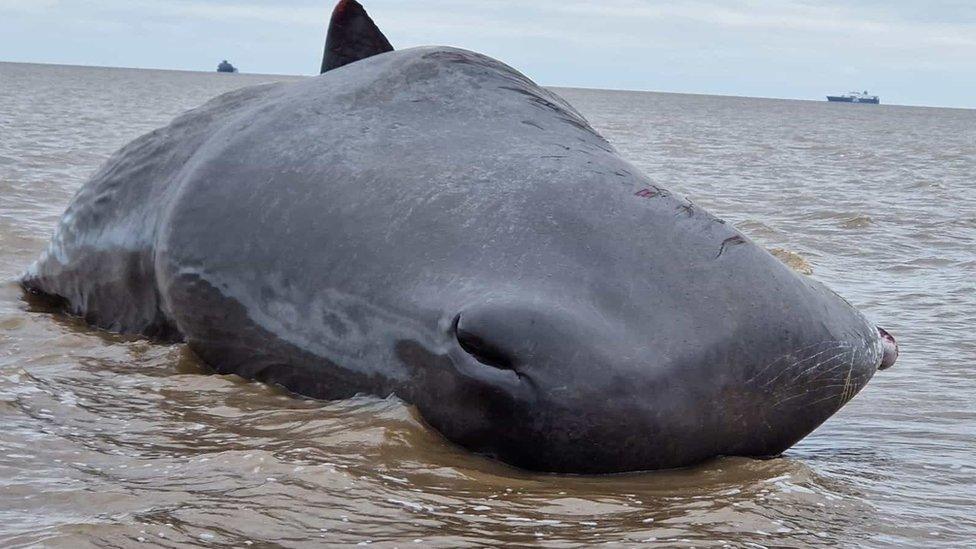Dead whale beached at Cleethorpes likely to wash up again, charity says
- Published

BDMLR's Emily Mayman said if it did become stranded again, people should keep a "respectable distance"
The body of a sperm whale which was washed back into the North Sea after being stranded on a beach is likely to reappear, experts said.
British Divers Marine Life (BDMLR) said it was called at about 12:15 BST on Friday to help with a "large stranded whale" on the beach at Cleethorpes.
The charity could not assess the 49ft (15m) whale as it became submerged, but said it was believed to have died.
BDMLR's Emily Mayman said it was highly likely it would wash up elsewhere.
Ms Mayman, the charity's Yorkshire and Lincolnshire assistant co-ordinator, said the body could "go north to Spurn Point or could reach Norfolk [as] it just depends what the tide is like".
She said if it did become stranded again, people should keep a "respectable distance".
'Malnourished and disorientated'
"Our concern would be that these animals do unfortunately carry diseases... which can transfer to people and until we know the cause of death and even after then, we would ask people to stay away from them," she said.
"If the same whale does wash up again and people want to go and see it, by all means take pictures but I would ask people to do so at a respectable distance.
"Don't approach it, don't touch it."
The charity said the whale, which was likely male as it was uncommon for females to be found so far north, had initially been spotted "upright in the water" at about midday, but by the time it reached the beach, it was on its side.
A representative said as the tide was rising quickly, there was "no way for BDMLR medics to safely access the whale".
"The beach safety team were able to show our medics CCTV footage... and it did appear to have passed away," they said.
They added that there had been "a number of strandings on North Sea coasts over the years".
"It seems these animals end up outside their normal habitat in these relatively shallow waters where they struggle to feed and find their way back out, becoming malnourished and disorientated.
"Unfortunately, this means by the time they strand, if alive, they are often in poor health."

Follow BBC East Yorkshire and Lincolnshire on Facebook, external, Twitter, external, and Instagram, external. Send your story ideas to yorkslincs.news@bbc.co.uk, external